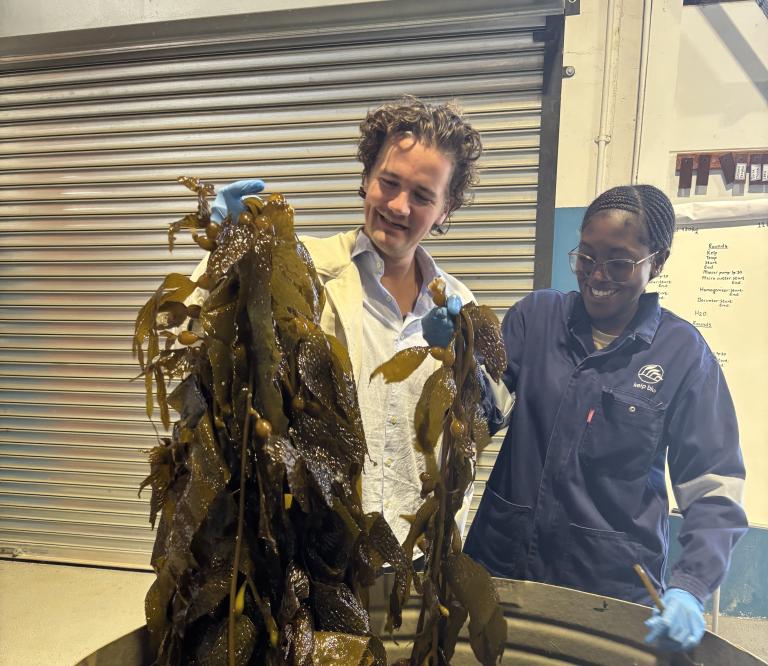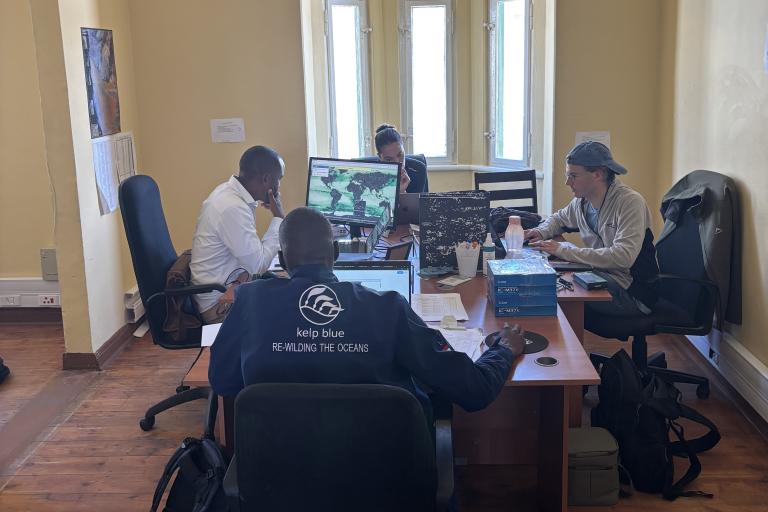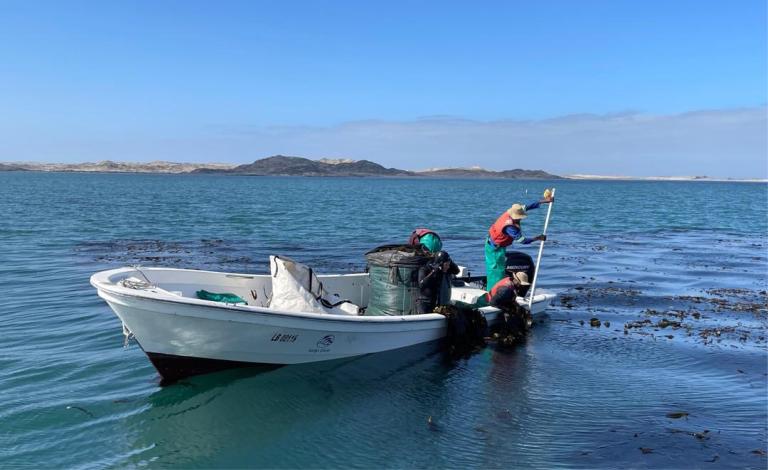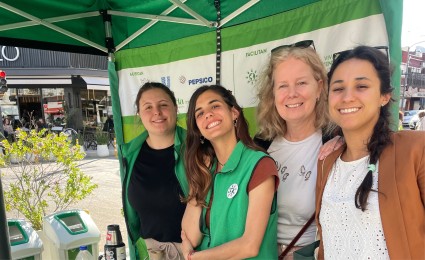

curious.
Creating change with kelp forests: Justin's Social Fellowship in Namibia
Hello everyone, I'm Justin, a Senior Consultant at Roland Berger's Amsterdam office. With a strong personal interest in sustainability, I eagerly applied for the Roland Berger Social Fellowship Program, which led me to an incredible opportunity with the Kelp Forest Foundation, a non-profit organization based in Amsterdam, Netherlands with activities in Lüderitz, Namibia.
In a world where climate change is accelerating and pollution continues to burden our oceans, the need for sustainable, nature-based solutions has never been greater. My fellowship experience with the Kelp Forest Foundation brought me face to face with the immense potential of kelp forests – a resilient marine ecosystem that can help combat climate change, improve ocean health, and support coastal communities. Working with KFF, I gained not only technical insights into the power of these ecosystems but also a deep appreciation for how nature can serve as a powerful ally in our journey toward environmental resilience and community revitalization.

The Kelp Forest Foundation and Lüderitz: A perfect setting for marine innovation
The Kelp Forest Foundation (KFF) is pioneering the use of kelp forests as a nature-based solution for climate resilience and ecosystem restoration. Dedicated to advancing research, promoting knowledge, and supporting the ecological and economic benefits of kelp forests, KFF focuses on kelp’s potential to capture carbon, cycle nutrients, and create habitats for marine life. With a presence in Lüderitz – a coastal town in Namibia known for its diamond mining history and relentless winds – KFF has established itself as a champion for environmental innovation in this remote yet impactful location.
KFF is affiliated with Kelp Blue, an entity that operates a large-scale kelp forest in Lüderitz. Kelp Blue harvests kelp to produce biostimulants, which are used to enhance agricultural productivity. The company is also exploring additional market opportunities for kelp products, including leather production, alginate extraction, and bio foam. This commercial approach provides economic benefits to the local community while advancing sustainable marine practices. Over 90% of the jobs created by Kelp Blue's operations are held by locals, directly benefiting the Namibian community.
In Lüderitz, KFF's mission extends beyond marine restoration. The foundation has woven community empowerment and education into its efforts. For example, KFF works with the Lüderitz Blue School, an elementary school that integrates ocean education into its curriculum to foster environmental stewardship and a love of learning in its students, preparing them to engage with their unique desert and marine environment.

Goals and project work: Building a framework for valuing kelp forest ecosystem services
In Lüderitz, I focused on evaluating the ecosystem services provided by kelp, including carbon sequestration, nutrient cycling, and contributions to commercial fisheries. Collaborating with marine biologists, environmental economists, and local researchers, I quantified these benefits in ways that could be effectively communicated to potential investors and policymakers. By clearly demonstrating the value of kelp forests through these ecosystem services, the framework provides a compelling case for why investing in kelp forests is not only environmentally sustainable but also financially viable.
This project in Lüderitz marked the first application of a framework designed for broader implementation. The framework is intended to be adaptable to different coastal regions, such as in New Zealand, Chile, and Norway, each with unique ecological and economic contexts. For example, while kelp forests are known to absorb CO₂ at a rapid rate, the effectiveness of this carbon sequestration depends on the specific kelp species in a given region, as different genera exhibit varying growth rates and carbon capture capacities. Additionally, kelp forests may hold greater economic significance in areas heavily reliant on commercial fishing or tourism, where water quality directly impacts industry sustainability.
Working on this project deepened my appreciation for the multifaceted benefits of kelp forests. Quantifying and effectively communicating these benefits serves as a way to attract funding for marine conservation and underscore the critical role of kelp forests in supporting local economies and global climate resilience.

Key insights and reflections
My time in Lüderitz left me with a deep understanding of both the potential and the challenges involved in reaching climate goals through nature-based solutions. One of the most powerful takeaways was witnessing how KFF's and Kelp Blue's work not only fosters environmental restoration but also creates a ripple effect of pride and stewardship within the community. The foundation's commitment to Lüderitz has cultivated a community that is invested in its own sustainable future.
This experience also underscored the importance of adaptability and empathy when working across cultural contexts. The people of Lüderitz welcomed me warmly, and their resilience in the face of environmental and economic challenges was inspiring. True impact, I learned, comes from engaging communities on a personal level and respecting their unique perspectives and contributions. I am grateful to KFF and Roland Berger for this amazing opportunity and wish KFF the best of luck with achieving their goals.




